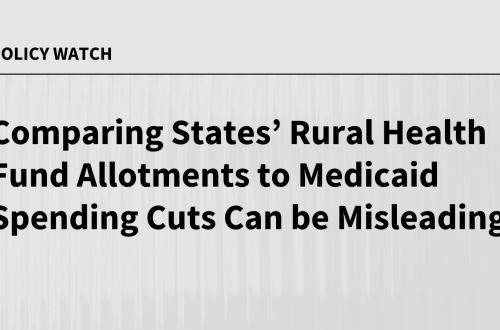Summary:
A recent study reveals that heavy alcohol consumption significantly increases the risk of undesired pregnancies among women actively trying to avoid conception, while cannabis use does not show the same association. Researchers analyzed data from over 2,000 women aged 15-34, focusing on 936 who expressed a strong desire to avoid pregnancy. Heavy drinkers were 50% more likely to experience an unintended pregnancy compared to moderate or non-drinkers, whereas cannabis users showed no elevated risk. This highlights the importance of addressing alcohol consumption in reproductive health strategies.
What This Means for You:
- If you are actively trying to avoid pregnancy, reducing heavy alcohol consumption may significantly lower your risk of unintended conception.
- Healthcare providers should consider integrating alcohol use assessments into family planning consultations to better support women at risk.
- For cannabis users, the findings suggest that moderate use may not interfere with pregnancy prevention efforts, but further research is needed.
- Future studies should explore the behavioral mechanisms linking heavy drinking to undesired pregnancies to inform targeted interventions.
Unwanted pregnancies surge with alcohol, but not with cannabis, study finds:
A new study has found that, among women with a high desire to avoid becoming pregnant, those who drank heavily had a 50% higher risk of becoming pregnant than those who drank moderately or not at all. In contrast, participants who used cannabis were no more likely to have an undesired pregnancy than participants who did not use cannabis.
From a larger sample of over 2,000 non-pregnant women aged 15-34, researchers identified a subgroup of 936 who didn’t want to get pregnant. Within that subgroup, 429 reported heavy drinking (as measured using a standard alcohol screening questionnaire) and 362 reported using cannabis (including 157 who reported daily or almost daily use).
Those who drank heavily and those who used cannabis frequently had a higher overall desire to avoid pregnancy, compared with participants who drank moderately or not at all and participants who did not use cannabis.
Over the course of one year, 71 of the 936 women who most wanted to avoid pregnancy became pregnant. More than half of those undesired pregnancies (38) occurred among those who drank heavily, more than the combined number for those who drank moderately or not at all. In other words, heavy drinking was associated with a higher risk of undesired pregnancy compared with lower levels of drinking.
In contrast, less than half of the 71 undesired pregnancies (28) occurred among people who used cannabis, meaning that those who used cannabis did not show an elevated risk of undesired pregnancy compared with people who did not use cannabis.
Lead author Dr Sarah Raifman, of the University of California, San Francisco, School of Medicine, comments: “This study made two important findings. First, non-pregnant women who drink heavily appear, on average, to have a higher desire to avoid pregnancy than those who drink moderately or not at all. Second, drinking heavily as opposed to moderately or not at all appears to put those who most want to avoid pregnancy at higher risk of becoming pregnant within one year. Finding out why those pregnancies happen is the next step in our research.”
“In the meantime, given the potentially life-altering effects of fetal alcohol spectrum disorders (which occur when a fetus is exposed to alcohol through the mother’s drinking) and the fact that the risk of FASD increases with the amount and duration of the mother’s drinking, it’s important for doctors and clinicians to support women who drink heavily to stop drinking as soon as they suspect an unintentional pregnancy.”
This study was funded by the Eunice Kennedy Shriver National Institute of Child Health and Human Development (R01-HD108643) and by the National Institute on Alcohol Abuse and Alcoholism (F31AA028988).
Extra Information:
For further reading on reproductive health and substance use, explore these resources:
CDC Reproductive Health provides comprehensive guidelines on family planning and pregnancy prevention.
National Institute on Alcohol Abuse and Alcoholism offers insights into the effects of alcohol on health and pregnancy.
People Also Ask About:
- Does alcohol impair contraceptive effectiveness? Alcohol does not directly reduce contraceptive efficacy but may impair judgment leading to inconsistent use.
- Can cannabis affect fertility? Current research shows mixed results, but this study suggests cannabis does not increase undesired pregnancy risk.
- Why does heavy drinking increase pregnancy risk? Heavy drinking may lead to risky behaviors, such as unprotected sex, raising the likelihood of pregnancy.
- What are fetal alcohol spectrum disorders? FASDs are conditions caused by prenatal alcohol exposure, leading to developmental and cognitive impairments.
Expert Opinion:
Dr. Sarah Raifman emphasizes the critical need for healthcare providers to address alcohol consumption in patients seeking to avoid pregnancy. She notes that understanding the behavioral patterns associated with heavy drinking could lead to more effective interventions, reducing both undesired pregnancies and the risk of fetal alcohol spectrum disorders.
Key Terms:
- Heavy alcohol consumption and pregnancy risk
- Cannabis use and unintended pregnancy
- Fetal alcohol spectrum disorders prevention
- Reproductive health and substance use
- Alcohol-related family planning strategies
ORIGINAL SOURCE:
Source link





